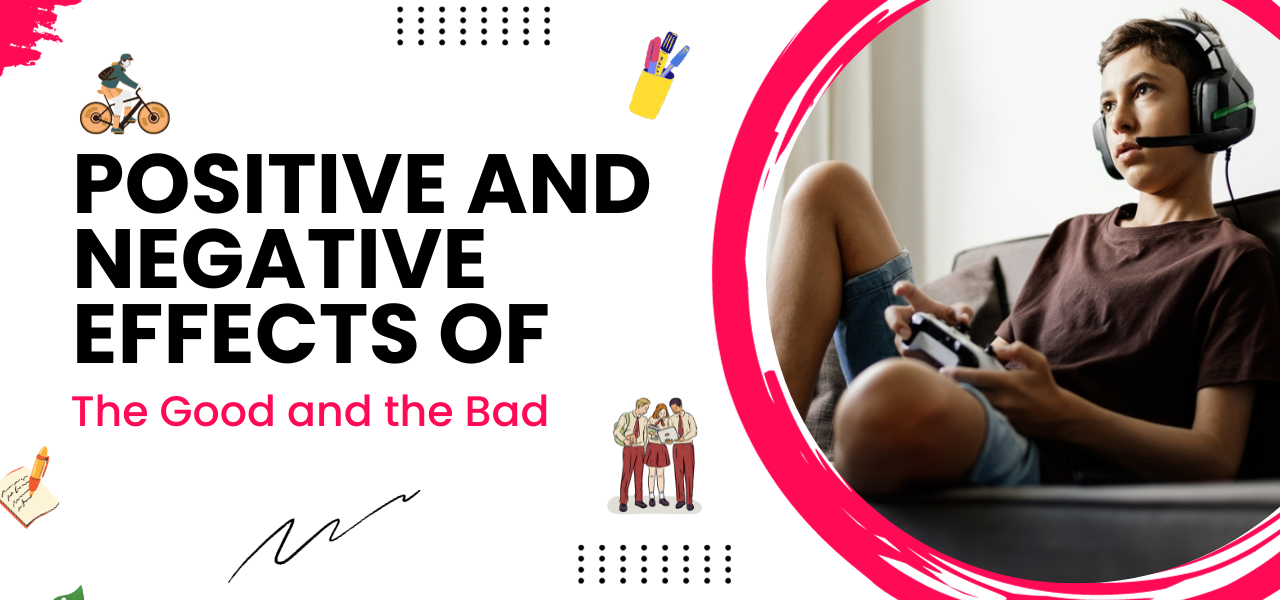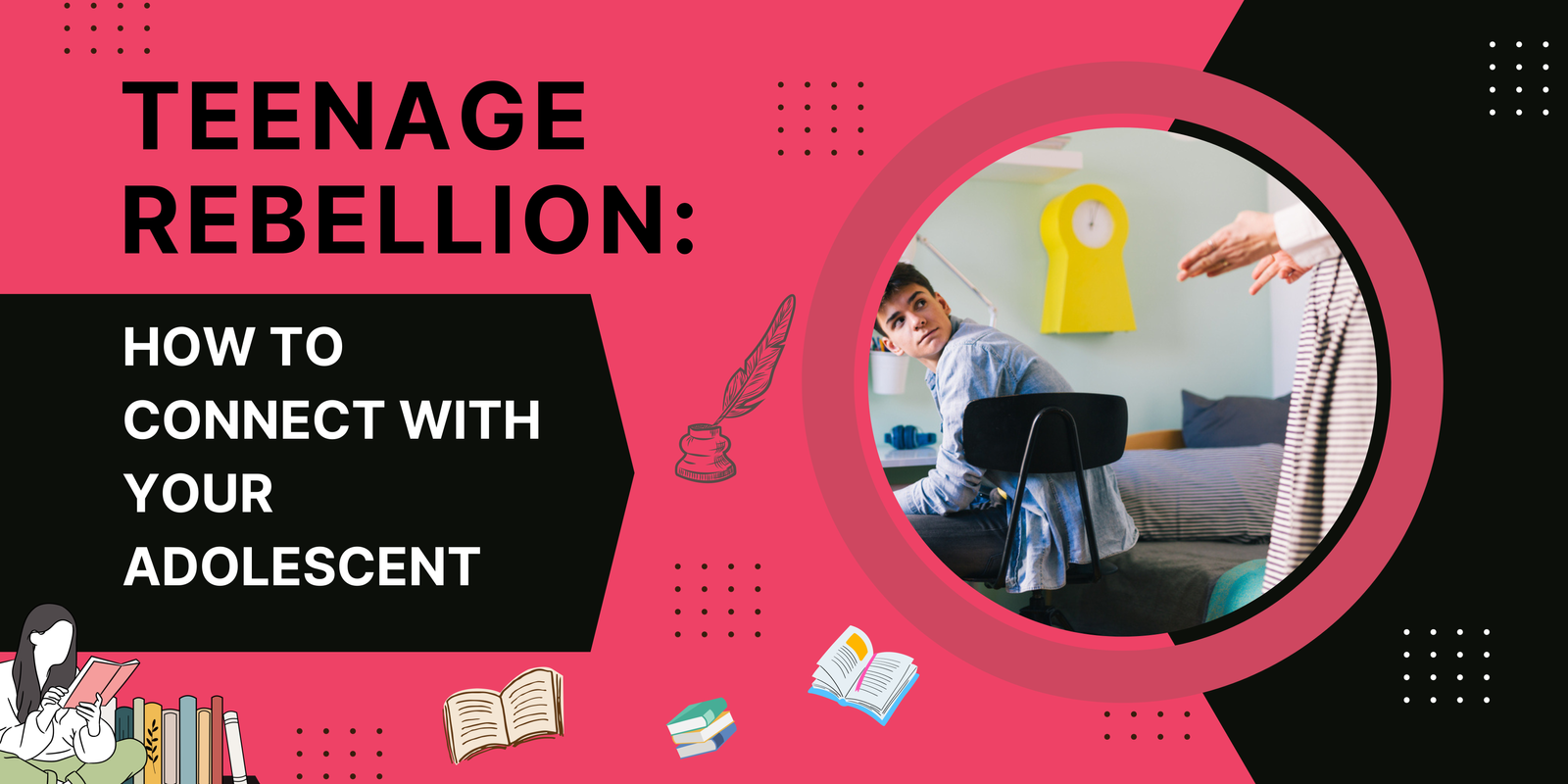Video games have become an integral part of teenage leisure, provoking debates on their influence. Understanding both the constructive and concerning aspects is crucial to comprehending their impact on teenagers’ lives.
Positive Effects of Video Games on Teenagers
1. Enhanced Cognitive Skills
- Description: Certain video games, particularly strategy-based ones, stimulate critical thinking, problem-solving, and decision-making skills.
- Supporting Studies: Research has shown a positive correlation between playing strategy games and improved cognitive abilities among teenagers.
2. Improved Coordination and Reflexes
- Description: Action-based games demand quick reactions, improving hand-eye coordination and reflexes in teenagers.
- Studies: Studies suggest that gaming can enhance fine motor skills and visual attention.
3. Social Interaction and Team Building
- Description: Multiplayer games foster social connections and teamwork skills among teenagers, encouraging collaboration and communication.
- Research Findings: Collaborative gaming experiences positively impact social skills and empathy.
Negative Effects of Video Games on Teenagers
1. Excessive Screen Time and Sedentary Behavior
- Description: Excessive gaming can lead to prolonged screen time, contributing to a sedentary lifestyle and potential health issues.
- Health Concerns: Increased risks of obesity, vision problems, and sleep disturbances are associated with prolonged screen exposure.
2. Aggressive Behavior and Desensitization
- Description: Certain violent video games have been linked to increased aggressive tendencies and desensitization to violence among teenagers.
- Studies: Research highlights the potential negative impact of violent game content on behavior.
3. Academic Performance and Time Management
- Description: Excessive gaming can lead to neglect of academic responsibilities, affecting grades and time management skills.
- Studies and Observations: Studies indicate a correlation between excessive gaming and lower academic achievement in some cases.
The Role of Parental Guidance in Moderating Video Game Effects
1. Establishing Boundaries and Balance
- Description: Parents play a pivotal role in setting boundaries and time limits for gaming, ensuring a balance between gaming and other activities.
- Parental Involvement: Actively engaging with teens to negotiate reasonable gaming schedules helps maintain a healthy balance.
2. Encouraging Diverse Activities
- Description: Encouraging participation in diverse activities beyond gaming, such as sports, hobbies, or creative pursuits, fosters a well-rounded lifestyle.
- Benefits: Diversifying activities aids in reducing excessive screen time while promoting holistic development.
Mental Health Implications and Well-being
1. Impact on Stress and Coping Mechanisms
- Description: Some video games act as stress relievers for teenagers, providing an escape and relaxation avenue.
- Balanced Approach: Encouraging a balance between gaming and other stress coping strategies ensures a holistic approach to mental well-being.
2. Potential Addiction Risks
- Description: Excessive gaming can lead to addictive behaviors, impacting mental health and social interactions negatively.
- Awareness and Intervention: Recognizing signs of addiction and seeking professional help when necessary are crucial in addressing potential risks.
Educational and Cognitive Benefits
1. Learning and Educational Games
- Description: Educational games designed to teach specific skills or subjects can have a positive impact on teenagers’ learning experiences.
- Benefits: Engaging educational games complement traditional learning methods, making education more interactive and engaging.
2. Cognitive Development and Problem-Solving
- Description: Certain video games, particularly those involving puzzles or complex scenarios, stimulate critical thinking and enhance problem-solving skills.
- Long-term Effects: Research suggests a positive correlation between certain types of video games and improved cognitive abilities over time.
Monitoring and Encouraging Positive Gaming Habits
1. Parental Monitoring Tools
- Description: Utilizing parental control tools and software helps parents monitor and manage their teenagers’ gaming habits effectively.
- Balanced Approach: Setting limits while respecting teenagers’ autonomy fosters responsible gaming habits.
2. Encouraging Game Selection
- Description: Encouraging the selection of games that align with teenagers’ interests while ensuring age-appropriate content fosters responsible gaming habits.
- Engagement and Awareness: Engaging in discussions about game content and themes promotes awareness and critical thinking in teenagers.
Encouraging Social Interaction and Empathy
1. Multiplayer and Cooperative Games
- Description: Cooperative and multiplayer games promote teamwork, collaboration, and social interaction among teenagers.
- Benefits: Engaging in multiplayer experiences nurtures empathy, cooperation, and communication skills.
2. Community Engagement in Gaming
- Description: Engaging in gaming communities or forums fosters social connections and offers a platform for teenagers to share experiences and ideas.
- Moderation and Guidance: Encouraging healthy interactions and moderating online behavior promote positive social experiences.
Impact on Emotional Regulation and Behavior
1. Emotional Expression and Regulation
- Description: Some video games offer a platform for emotional expression, aiding teenagers in understanding and regulating their emotions.
- Awareness and Communication: Encouraging discussions about in-game experiences helps teenagers comprehend and articulate emotions.
2. Impact on Behavior Outside Gaming
- Description: Behaviors exhibited in video games might sometimes influence attitudes or actions outside the gaming environment.
- Guidance and Perspective: Discussing distinctions between real-life and virtual scenarios helps inculcate responsible behavior.
Addiction and Moderation Strategies
1. Identifying Signs of Gaming Addiction
- Description: Recognizing signs like neglect of daily activities, withdrawal symptoms, and increased irritability is crucial in identifying potential gaming addiction.
- Intervention and Support: Seeking professional guidance and interventions when addiction signs are observed is crucial for a teenager’s well-being.
2. Strategies for Moderating Gaming Habits
- Description: Implementing structured gaming schedules, promoting varied interests, and providing alternative activities foster balanced habits.
- Parental Involvement: Active parental involvement in planning and enforcing gaming schedules is essential for effective moderation.
Impact on Sleep Patterns and Health
1. Influence on Sleep Quality
- Description: Excessive gaming, especially before bedtime, can disrupt sleep patterns and affect the quality and duration of sleep.
- Sleep Hygiene: Encouraging designated screen-free times before bedtime aids in improving sleep hygiene.
2. Physical Health Concerns
- Description: Prolonged gaming sessions can lead to physical discomfort, such as eye strain, headaches, and muscular issues.
- Balanced Routine: Encouraging breaks, stretching exercises, and maintaining proper posture during gaming sessions mitigates physical strain.
FAQs on Effects of Video Games on Teenagers
Q 1. Can video games enhance problem-solving skills in teenagers?
Ans 1: Yes, certain video games, especially strategy-based ones, stimulate problem-solving abilities by requiring critical thinking and decision-making.
Q 2. Are all video games detrimental to academic performance?
Ans 2r: Not necessarily. Excessive gaming that leads to neglect of academic responsibilities may impact grades, but not all gaming is directly detrimental.
Q 3. How can parents effectively limit excessive gaming habits?
Ans 3: Setting clear time limits, monitoring game content, and engaging in open discussions to negotiate gaming schedules can help regulate excessive gaming habits.
Q 4. Can violent video games cause aggressive behavior in all teenagers?
Ans 4: While there’s a correlation between violent games and increased aggression in some teenagers, individual responses vary based on numerous factors.
Q 5. Do all video games have a negative impact on teenagers’ behavior?
Ans 5: No, not all video games have a negative impact. Some games promote learning, cognitive skills, and social interaction.
Q 6. What role do parental controls play in managing gaming habits?
Ans 6: Parental controls enable parents to monitor and manage content, time limits, and online interactions, aiding in responsible gaming habits.
Q 7. Can video games aid in improving teenagers’ decision-making skills?
Ans 7: Yes, certain video games involving strategy and decision-making can positively impact teenagers’ cognitive abilities and decision-making skills.
Q 8. Are there benefits to teenagers engaging in gaming communities or forums?
Ans 8: Participating in gaming communities fosters social interaction, sharing of experiences, and often encourages teamwork and collaboration among teenagers.
Conclusion: Navigating the Video Game Landscape for Teenagers
Understanding the multifaceted impact of video games on teenagers is crucial for parents to navigate this digital landscape effectively. Video games offer both beneficial and concerning aspects, necessitating a balanced approach. By fostering open communication, setting boundaries, and encouraging diverse activities, parents can guide their teenagers towards responsible and enjoyable gaming experiences while mitigating potential risks.
Parentology serves as an informative hub, providing guidance on managing teenagers’ digital lives and facilitating informed decision-making for parents. Explore Parentology for more insights on balancing technology and teenage development.





